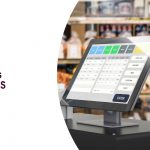Choosing the Right Point of Sale System.
Many retailers put a lot of their time, focus, and resources into finding ways to generate more sales.
After all, more sales means more revenues. And more revenues provide more opportunity for future business growth.
While it’s important to drive new customers to purchase products (and keep existing customers loyal and coming back again and again), retailers can’t neglect the systems and processes that physically allow for sales to happen.
This is where the right retail POS, or point of sale systems, comes into play. The best POS systems allow you to not only actually conduct sales transactions, but also handle a number of other activities around that sale from inventory management to returns and exchanges to tracking customer behavior.
Understand Your Own Needs and Wants First
There’s more than one retail POS system out there, and comparing them before you understand what your needs are can leave you feeling overwhelmed and confused.
In Pakistan alone there are countless POS softwares that provide the best features, benefits, and so much else. However, if you leave it solely up to the provider to sell you on their system, you may end up with a POS that’s shiny and new — but does nothing that your specific needs demand.
That means you need to know how to evaluate what you actually need. Consider these important functions, and how you as a retailer incorporate each into your business:
Inventory Management
Sell products? You need to watch inventory closely to keep shelves stocked. Point of sale systems should help you manage this by keeping numbers and data up to date with every single transaction.
Customer Management
In addition to managing your product, you may want to keep an eye on customer activity, too. Some retail POS systems in Pakistan can help you manage loyalty programs. Depending on the data they collect, they can also give you insights on specific customer behaviors that help you determine the most effective discounts or sales to offer next.
Returns and Exchanges
Anyone who sells a product needs to deal with product returns and exchanges. The right POS makes this simple and easy to do within the system.
Smaller retailers operating in Pakistan out of shared space, markets, or another mobile and flexible kind of shop may only need a tablet and a card reader that integrates with a cloud-based POS system. Larger stores with more traditional checkout counter layouts need more hardware including terminals, receipt printers, traditional (rather than mobile) card readers, and potentially more.
What Capable Point of Sale Systems Should Do
It’s important to know what your specific business needs. After all, everyone operates a little differently and your plans for your store are likely as unique as the products you sell.
But there are also fundamental functionalities that most retailers need to process payments. Any point of sale software you consider should set you up for success as a baseline. Specific features can be a bonus. But these capabilities are non negotiable. Ask yourself these questions when you start researching potential solutions. If a POS can’t answer “yes” for itself, you know you can discard it from your finalist group.
- Is it Easy to Use?
As important as your retail POS is, you have plenty of other things to manually fix, tinker with, and adjust. Your POS should be simple enough to use that you don’t need to consult a manual every other day just to keep it up and running.
- Does it Integrate With Other Areas of Your Business?
Can it access data from your logistics and supply chain to instantly update inventory and order information? If that’s an important feature for your business, and your prospective POS lacks this feature, then skip it.
Look for POS systems that automate as much as possible. You don’t want to spend time transferring information from platform to platform, introducing opportunity for human error and wasting your most precious resource: time.
- Is the Pricing Simple, Straightforward, and Transparent?
If a POS doesn’t clearly and plainly state how much it will cost you to use, be wary. You and your business deserve better than a system that will trip you up with hidden fees and confusing costs.
- Can You Use it Anywhere?
You may keep a physical storefront with a built-in cashwrap. But what happens when you’re invited to throw a pop-up shop in the trendy part of town? Can you go to events or markets and acquire new, paying customers on the spot thanks to a POS that goes and works anywhere?
You need a system that provides you with freedom and flexibility to accept payment anywhere. If the point of sale systems you consider don’t allow you to do that, they may not be a good fit.
- Does it Track Important Analytics and Metrics?
As a retailer, you need to track a lot of important information about the sales transactions that happen in your business.
Sound point of sale systems will not only allow you to make these transactions, but will also track data points that are critical in making decisions around how to improve processes and boost sales.
- Does the Retail POS Provider Offer Accessible Customer Service?
Just like you need to maintain the capability to accept payments anywhere, you need the ability to reach out to your POS’s support staff any time.
Business doesn’t stop on weekends or in the evening. Your POS provider’s support shouldn’t be limited, either. Make sure if you have a problem or question, you can get a resolution right away from a customer support team that’s accessible anywhere, anytime.
By paring down to what you know is essential, it makes it easy to see which POS systems are viable options. That helps you narrow your focus down to just a handful, making it less inundating to dive in and compare the details. Once you understand what you need a POS to do for your business, you can quickly eliminate options that you know don’t cut it.
Make Your Final Decision
Once you go through a trial on your finalist point of sale systems, make sure you resolve any issues that come up or get answers to your questions. Gathering as much information and data makes you informed. That, in turn, means you’re better equipped to choose the right POS based on your needs.
So, leave no question unanswered and address anything lingering that you feel unsure or uncertain about. In addition to talking directly with the provider, you may want to read user reviews online or talk to other businesses who use a POS to get a fresh perspective. Only you know how you want your business to run today, and how you want to set it up for success in the future. Solid point of sale systems make it possible to sell more, more efficiently.








